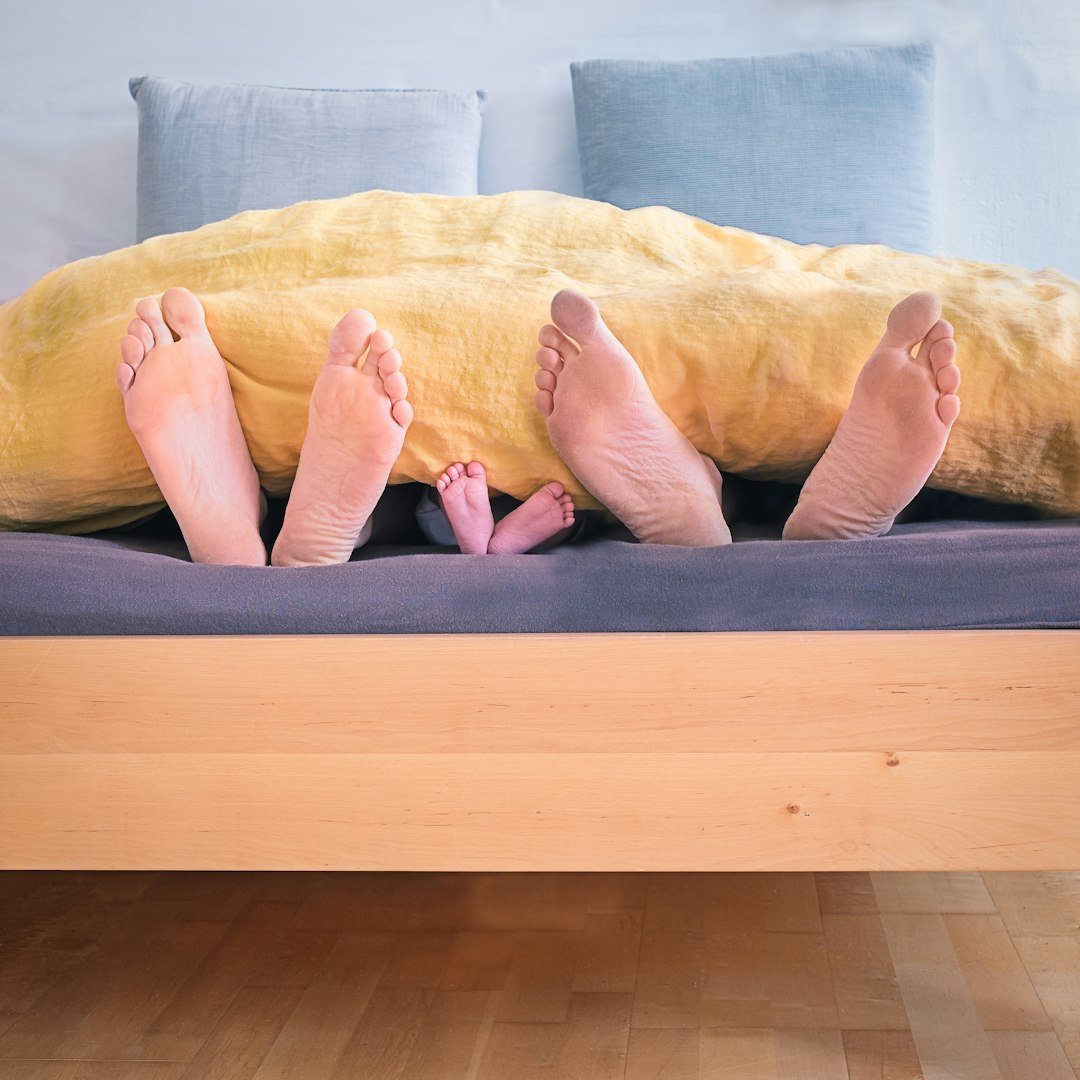Why Sleep Is So Important for Your Health
 I have heard so much about sleep being a critical component of health that I thought I would check the topic out. Before I started my research, I virtually ignored the subject of sleep. After all, you get tired and go to bed. If you’re really tired you just crash. Doesn’t your body tell you how much you need? Just recharge the batteries and you’re good to go for another day.
I have heard so much about sleep being a critical component of health that I thought I would check the topic out. Before I started my research, I virtually ignored the subject of sleep. After all, you get tired and go to bed. If you’re really tired you just crash. Doesn’t your body tell you how much you need? Just recharge the batteries and you’re good to go for another day.
Far from it. I found that sleep is one of the most vital yet often overlooked aspects of health and well-being. It’s during sleep that our body repairs itself, our brain processes information, and our immune system strengthens. Despite its importance, modern lifestyles and stressors have led to an epidemic of sleep deprivation. Poor sleep not only affects daily productivity but is also linked to long-term health issues such as heart disease, diabetes, obesity, and mental health disorders.
Let’s dive a bit more into sleep, its profound impact on overall health, the science of sleep, and some actionable tips for improving sleep hygiene.
Why Sleep is Essential
Sleep is not just “downtime” for the body; it is an active process during which critical functions take place:
- Physical Restoration:
During deep sleep, tissues grow and repair, muscles relax, and energy is replenished. Growth hormones are released, helping with cell repair and regeneration. - Mental and Cognitive Function:
Sleep is essential for memory consolidation, decision-making, and emotional regulation. A well-rested brain processes information more efficiently and is better at solving problems. - Immune System Support:
Sleep strengthens the immune system by enhancing the production of cytokines, proteins essential for fighting infections and inflammation. - Hormonal Regulation:
Sleep influences hormones related to appetite, stress, and mood. For example, poor sleep disrupts leptin and ghrelin, the hormones responsible for hunger and fullness, potentially leading to weight gain.
The Science of Sleep
The sleep cycle consists of five stages divided into two broad categories: non-rapid eye movement (NREM) sleep and rapid eye movement (REM) sleep. Each plays a unique role in restoring the body and brain:
- Stage 1 (NREM): A light sleep stage where the body begins to relax.
- Stage 2 (NREM): A deeper stage where heart rate slows, body temperature drops, and muscles further relax.
- Stage 3 and 4 (NREM): Known as deep or slow-wave sleep, these stages are crucial for physical recovery and immune system strengthening.
- Stage 5 (REM): This is the dreaming stage, important for emotional health and memory processing.
A full sleep cycle lasts about 90 minutes, and adults typically need 4–6 cycles per night for optimal health, equating to 7–9 hours of sleep.
Consequences of Poor Sleep
Chronic sleep deprivation has far-reaching consequences:
- Physical Health Risks: Increased risk of cardiovascular diseases, obesity, and diabetes.
- Cognitive Decline: Impaired focus, memory, and decision-making abilities.
- Emotional Strain: Greater susceptibility to anxiety, depression, and irritability.
- Weakened Immune System: Heightened vulnerability to infections and slower recovery times.
Guidelines for Improving Sleep
The good news is that many of the factors affecting sleep are within our control. By practicing good sleep hygiene, you can improve the quality and duration of your rest.
- Maintain a Consistent Sleep Schedule
- Go to bed and wake up at the same time every day, even on weekends.
- A regular schedule helps regulate your body’s internal clock (circadian rhythm).
- Create a Sleep-Friendly Environment
- Keep It Dark: Use blackout curtains or an eye mask to block light.
- Quiet Matters: Use earplugs or a white noise machine if your surroundings are noisy.
- Cool Temperature: The ideal bedroom temperature is between 16–19°C (60–67°F).
- Comfortable Bedding: Invest in a supportive mattress and comfortable pillows.
- Limit Exposure to Screens Before Bed
- The blue light emitted by phones, tablets, and computers suppresses melatonin, the hormone that promotes sleep.
- Turn off electronic devices at least 1–2 hours before bed or use blue-light-blocking glasses.
- Establish a Relaxing Bedtime Routine
- Engage in calming activities such as reading, meditating, or taking a warm bath.
- Avoid stimulating tasks like working or watching intense TV shows before bed.
- Be Mindful of Diet and Drinks
- Avoid large meals, caffeine, and alcohol in the hours leading up to bedtime.
- While alcohol may initially make you sleepy, it disrupts REM sleep later in the night.
- Exercise Regularly
- Physical activity can improve sleep quality but avoid vigorous workouts close to bedtime. Aim for at least 30 minutes of moderate exercise daily.
- Manage Stress
- Chronic stress disrupts sleep. Practice relaxation techniques like deep breathing, yoga, or journaling to calm your mind.
- Avoid Napping Late in the Day
- While short naps can be refreshing, long or late naps can interfere with nighttime sleep. Limit naps to 20–30 minutes, ideally in the early afternoon.
- Expose Yourself to Natural Light
- Natural light helps regulate your circadian rhythm. Spend time outside during the day, especially in the morning.
- Use Your Bedroom Only for Sleep and Intimacy
- Avoid working, watching TV, or using your phone in bed. This helps your brain associate the bedroom with relaxation and sleep.
When to Seek Help
If you consistently struggle with sleep despite following good sleep hygiene, consider consulting a healthcare professional. Conditions like insomnia, sleep apnea, restless leg syndrome, or narcolepsy may require specialized treatment.
Key Takeaways
 Sleep is a cornerstone of good health, affecting nearly every aspect of our physical and mental well-being. It is so important that I have made some adjustments in my life (albeit slowly) to create an environment and routine conducive to restful sleep.
Sleep is a cornerstone of good health, affecting nearly every aspect of our physical and mental well-being. It is so important that I have made some adjustments in my life (albeit slowly) to create an environment and routine conducive to restful sleep.
Improving sleep doesn’t happen overnight, but with consistent effort, you’ll notice significant benefits to your energy, focus, and overall quality of life. Start small by implementing one or two tips from this guide, and gradually work your way toward better sleep hygiene. Remember, prioritizing sleep is one of the most effective ways to invest in your health.
